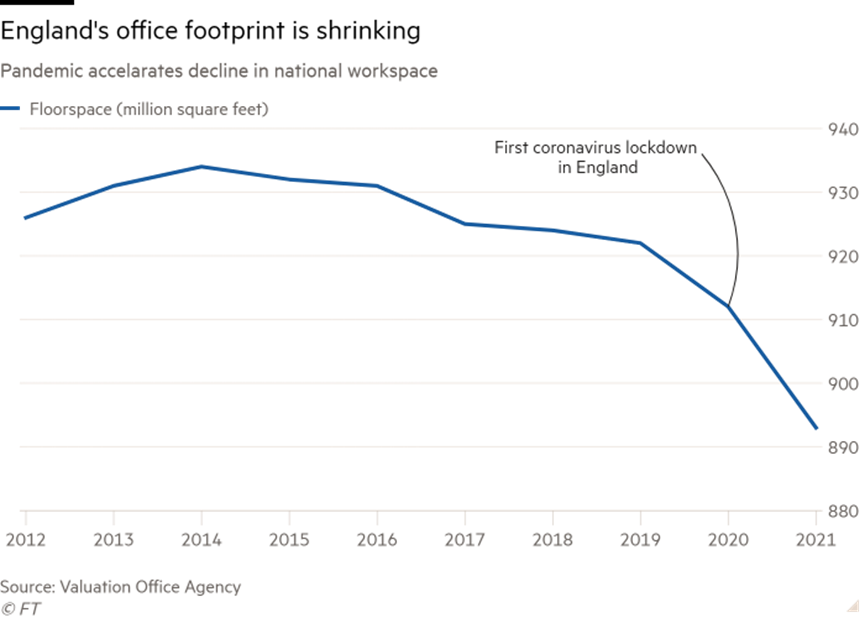Do We Make Fewer Friends When Working From Home?: TOP 5 Trends From The World Of Work
2022-01-14
This week, the water cooler dilemma: as more workplaces move digital, adults may struggle to connect with their coworkers. Is this the death of post-work drinks?
What else matters this week?
In the U.S., workers quit their jobs at record levels in November.
How to harness the collective intelligence of remote teams.
Tactics and tools to keep your meetings on track.
The 6 key world of work trends that will shape 2022, according to our CEO Alain Dehaze.
We've got a full breakdown of all the top headlines you can't miss this week.
#1. Buffering burnout as you return to the office.
How many days has the pandemic lasted? It's been nearly two years, and many workers have adjusted to their new normal – whether that be work from home or masks in the office or something in between.
As workers start their journeys to return to the office, there's talk of burnout amid inevitable resistance. Why?
"We're not re-emerging refreshed and ready to go, it's actually quite the opposite," says Mary Spillane, a clinical psychologist and the Australian mental health expert for the Headspace app.
How can we battle burnout on the return to the office heading into the new year? Dr Mark Deady, a workplace mental health specialist at Black Dog Institute, suggests trying these tips:
Don't compare yourself to others
Bounce forward and take steps to live the kind of life you want
Use healthy coping strategies to tackle problems
Take steps to craft your job, or balance demands of the job with resources, abilities, and needs
Reach out if you need help

Photo: Tara Winstead via Pexels
#2. How work from home affects (and imperils) work-friend prospects
Can you make new friends and forge strong bonds with new colleagues when all your communications are digital?
Most adults are likely to make friends at work over any other place, according to Gallup research.
But with so many workplaces moving to the virtual space, one Boston Magazine piece argues that it may become even more difficult to make new friends. With remote work, gone are the days of water cooler chats or lunchtime gossip.
"Work gives us social connections, professional friends, personal friends," says Tsedal Neeley, a professor at the Harvard Business School. She sums it up in one word: nourishment.

Photo: Brooke Cagle via Unsplash
#3. Are remote workers really plugged into company culture?
One of the biggest victims of the pandemic's remote work revolution may be company loyalty and company culture.
More workers are logging in from their home office, feeling disconnected from supervisors, co-workers, and office culture. The sense of isolation that many workers feel can overwhelm the benefits of working from home.
How can workers continue to experience shared purpose, value, and sense of community? Leaders need to keep company culture as a key consideration at the management level in the post-pandemic working models.

Photo: Ivan Samkov via Pexels
#4. Resilience is all about recharging, not enduring.
You put in the long hours. You tough it out.
At the end of it all, most people expect one result: success.
However, more often than not, workers who put in overtime find themselves exhausted with a never-ending list of tasks to complete. The root cause may be a common misunderstanding of the concept of resilience. Resilience involves working hard, of course, but it also requires taking time to stop and recover before putting in more work.
Recovery time is essential for good health and productivity at work. What does that mean in practice? Stepping away from your phone, eating lunch outside the office, and maxing out your vacation time – to start.

Photo: S Migaj via Unsplash
#5. Office space shrinks dramatically in England
Office space may be a thing of the past. During the pandemic, the amount of office space in England shrunk by millions of square feet. That number is expected to continue shrinking as the months go on as many company continue to grapple with the shifting future of work.
Developers, as a result, feel more pressured to make workplaces flexible and greener. In the 12 months to March 31 last year, office space fell 2%. Property analysts say the amount of available office space has likely shrunk even further since March, and developers are anticipating a more flexible future when less space is needed to accommodate an equivalent workforce.
"Our view is we don't need as much office space in the UK or anywhere else if high levels of agile working remain . . . it's reasonable to say this [reduction in space] is a trend going forward and a trend that needs to happen," said Mat Oakley, head of European commercial property research at real estate company Savills.

Photo:Financial Times
-
Last:The four-day working week revolution will be the future trend? TOP 5 Trends From The World Of Work
-
Next:Resetting Normal: Defining the New Era Of Work 2021

.svg)



